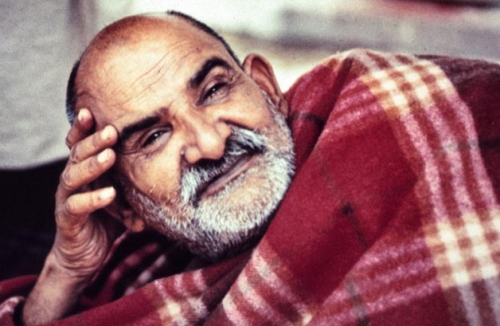 When I met my guru, Neem Karoli Baba, in 1971, my life was turned inside out. I was like an asteroid hurtling through space, suddenly pulled back into orbit by the gravitational force of the sun.
When I met my guru, Neem Karoli Baba, in 1971, my life was turned inside out. I was like an asteroid hurtling through space, suddenly pulled back into orbit by the gravitational force of the sun.
At first I wasn’t interested; I was quite jaded at the ripe old age of 19, having already had my fill of fake gurus. In fact, finding a guru was the last thing on my personal agenda. But somehow, way beyond the workings of my mind and understanding, Maharajji entered my heart and took the form of my eternal beloved, setting up his permanent encampment there. And the soundtrack for all of this was Kirtan.
Many thousands of years ago, the rishis of India gave us the great systems of yoga, teachings to bring us to a state of harmony, peace, and ultimately, mystical union with the Divine. These ancient yogis were well aware of the multiple layers and components-physical, mental, emotional, etcetera-that make up the human animal, and they created practices to bring light to the whole being. Over the millennia, much of this has been lost. Many of us think of yoga as a set of exercises to enhance physical beauty and stamina, with an occasional short meditation thrown in for its calming effects. But this is only a small part of the picture. What of the heart, the great well of human emotions, that unruly, sometimes stormy sea of feelings?
The primordial seers recognized these emotions as a vital and sacred part of the human being-not an obstacle or an accident, rather a great, freeing energy to bring us to liberation. And they gave us Bhakti yoga to channel that energy and use it as a bridge to carry us back to the Source. Bhakti roughly means devotion. However the meaning is not the usual, somewhat narrow one of submission/love/servitude, but a relationship with the universe that is so huge it embraces every color of the emotional spectrum. So in Bhakti yoga, we keep our minds concentrated on the eternal, but we lead with our hearts. We sing, we dance, we play music, we write poetry, we cook, paint, make love and do it all as part of our dialogue with our eternal beloved. And who is that? Maharajji said:“The best form to worship God is every form.”So, in this lila (play) of Bhakti we have a cast of thousands, but only one vast universal heart.
Kirtan-chanting the many names or mantras of the Gods and Goddesses-is perhaps the most important technique in Bhakti yoga. Although the practice itself is very simple, the internal process that it stimulates is vast and mysterious. Externally, we’re just singing repetitive songs with simple melodies and a few Sanskrit words. We’re asked to try to put our analytical minds to the side (easier said than done), and sing from our hearts. We’re told that whatever emotion we’re feeling, even anger, can be passionately channeled into the song.
We’re told that it doesn’t matter the slightest bit what our voices sound like. Then the magic happens. Walls constructed long ago come crumbling down. Wounds that we never knew were there begin to heal. Long submerged emotions, both joy and sorrow, come to the surface to be offered up into the chant. And somehow, effortlessly, we move into a meditative state that creates a safe, calm haven for the flower of the heart to unfold. Whether or not we understand the meanings of the words, these chants become vessels to carry our deepest unspoken prayers to the infinite soul of God.
One of the amazing things about Kirtan as a practice is that it welcomes any mood or emotional condition. We can sing softly, like a mother to her baby. We can sing sensually, as if to a lover. And we can sing with the powerful energy of an angry warrior. Our whole being is offered.
Whoever we are at any given time, whether happy or sad, shining with light or hidden in darkness, our prayers are perfect in the eyes of unconditional love.
Finally, one who embraces the path of Bhakti very quickly stops doing these practices to get anything or feel anything. Rather, the Kirtan becomes an outpouring of love and emotion to the beloved, an unburdening, an offering. I feel, when I sing, my connection to my guru, my longing to be closer, and my gratitude for His unending grace. Truly, the essence of Bhakti is surrender, offering our individual selves to the great ocean of pure consciousness, gently resting in the loving embrace of the Divine Mother, saying, “Not my will, but Thy will be done.”

